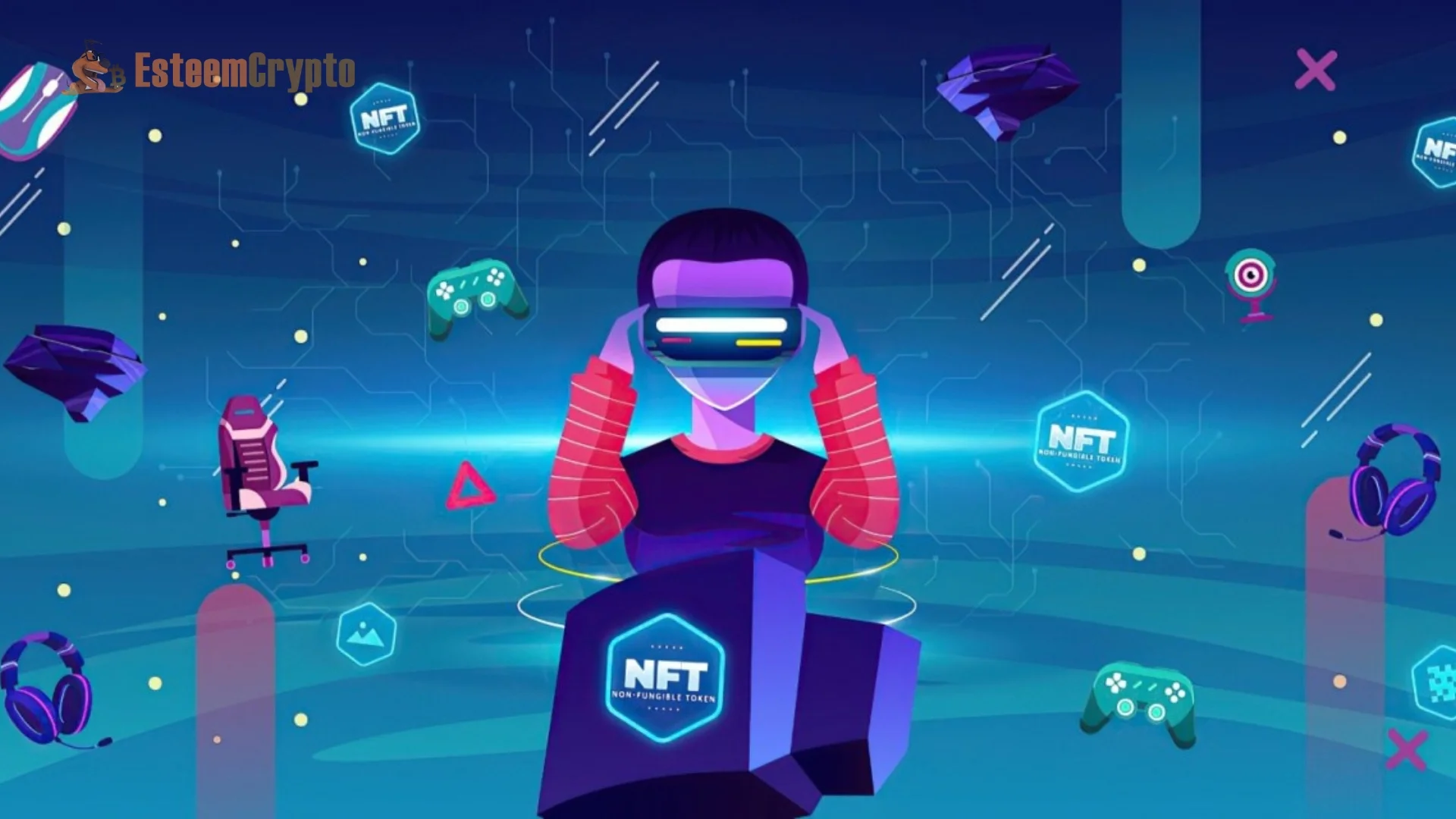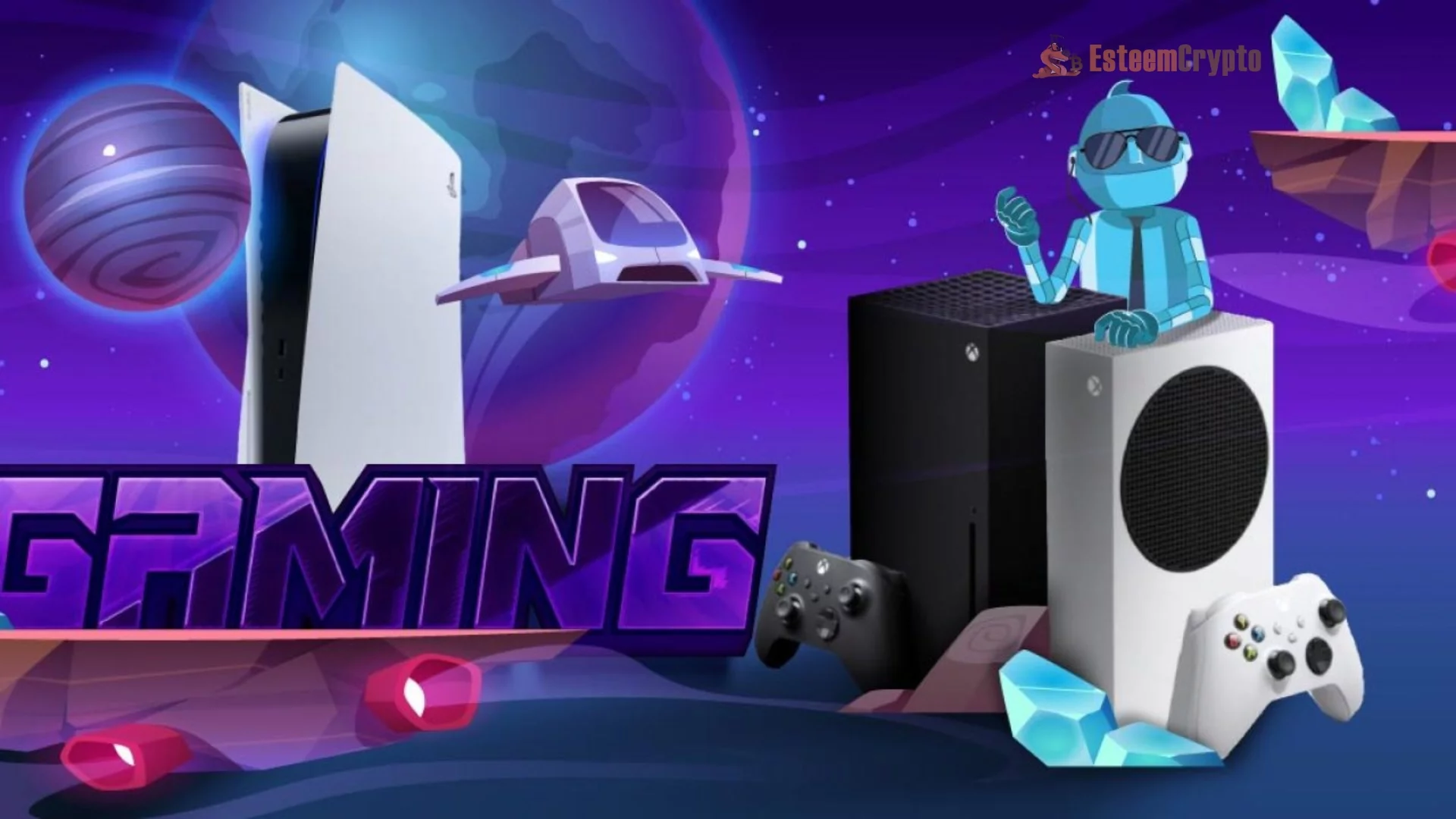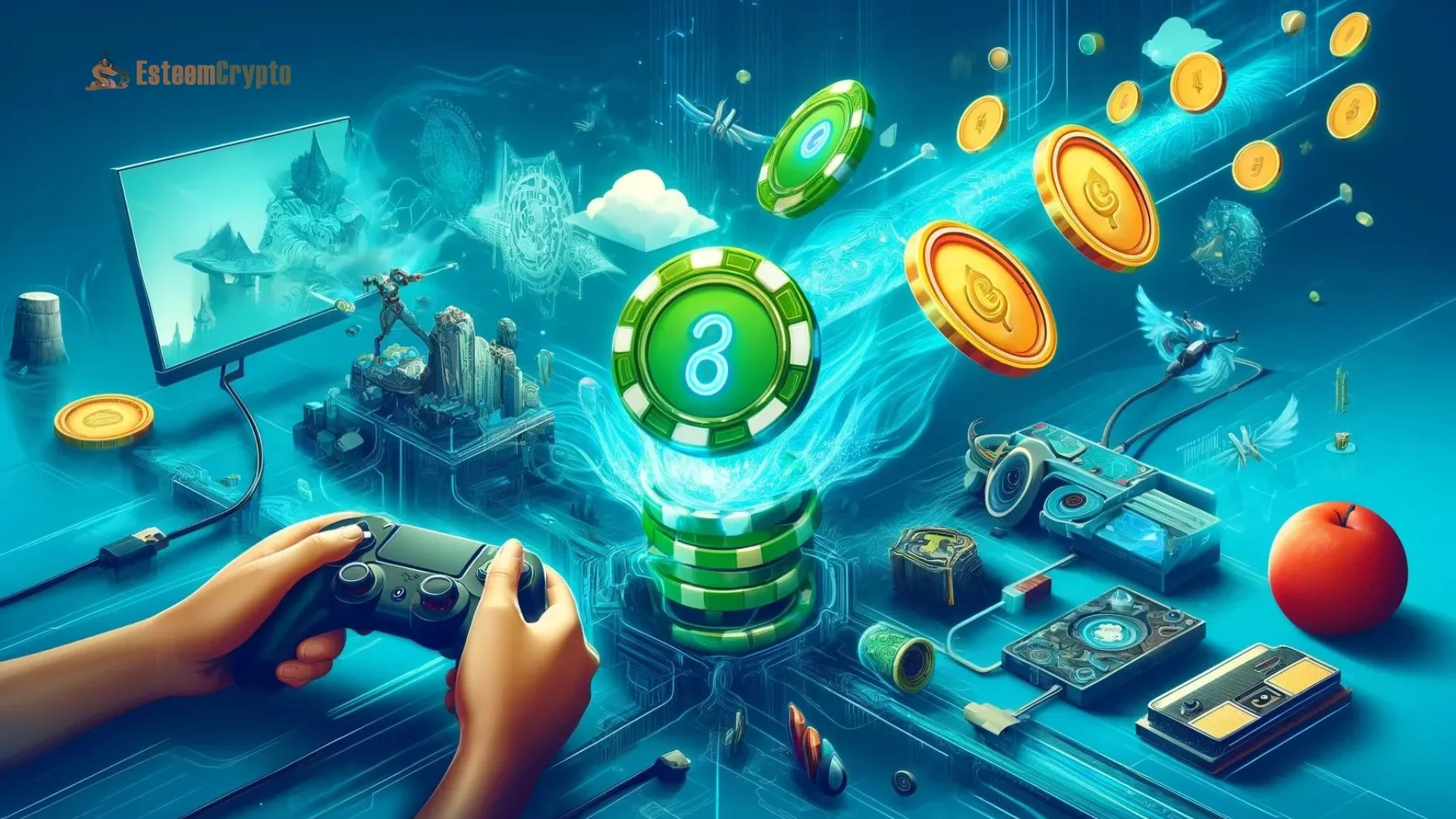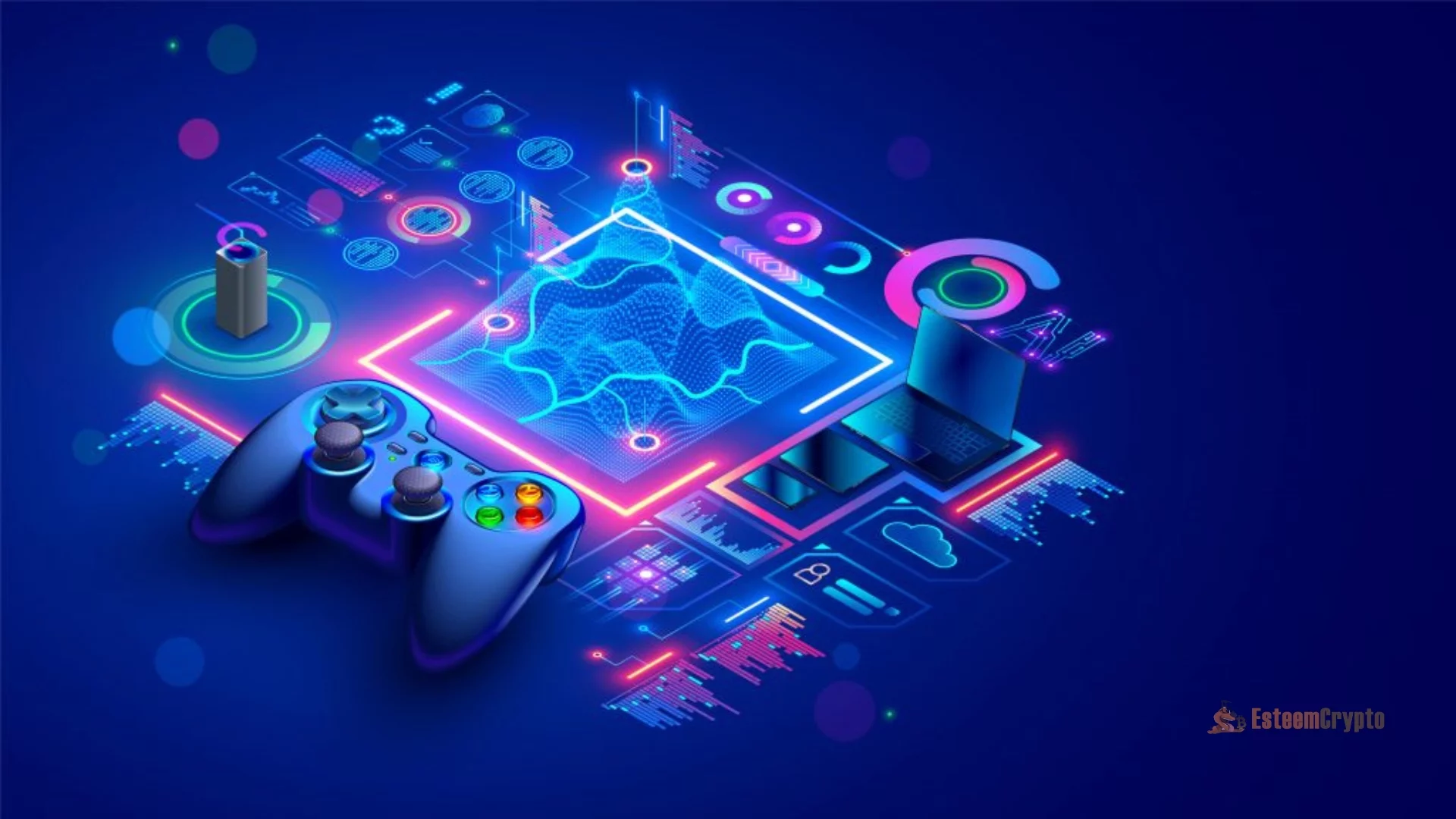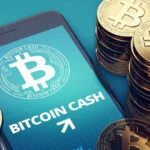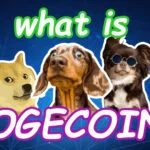NFT Games Today: The advent of NFT games results from merging blockchain technology with the gaming industry. These games have been causing a stir in the gaming industry thanks to the unique digital assets and play-to-earn models they offer, made possible by Non-Fungible Tokens (NFTs). What follows is an examination of the present state of NFTs, their influence on the gaming sector, and their potential future developments.
Understanding NFT Games
NFT games use blockchain technology to build a decentralized ecosystem to facilitate digital asset ownership, trading, and monetization. In these games, NFTs can stand in for various virtual goods, such as virtual land, skins, weaponry, and characters. On several marketplaces, players can purchase, sell, or trade these items, with cryptocurrency being a common form of payment.
Popular NFT Games Today
Axie Infinity
Among NFT games, Axie Infinity is among the best known. The game’s creator, Sky Mavis, wanted players to be able to gather, nurture, and fight magical beings called Axies. Axie are non-fungible tokens (NFTs) with special skills and traits that make them useful. A significant user base has been attracted to the game because of its play-to-earn premise, which allows players to earn bitcoin through combat and Axie breeding.
Decentraland
In the virtual realm of Decentraland, people can purchase, construct, and earn virtual land and assets. The platform uses the Ethereum blockchain to confirm who owns virtual plots of land that can be turned into anything from art galleries to gaming enclaves. Developers and players alike can rake in dough by renting and selling digital goods and virtual real estate.
The Sandbox
Players in The Sandbox, like in Decentraland, can build, own, and profit from their unique gaming experiences. The platform’s native cryptocurrency, SAND, is used by players to purchase virtual land and assets. The Sandbox has a powerful creative suite where users may create virtual environments, personalize them, and then sell or share them with others.
The Impact of NFT Games
Many features in NFT games make playing them more fun. Players are highly motivated to invest time and money into these games because of the opportunity to own unique digital assets and earn bitcoin. Furthermore, incorporating blockchain technology guarantees the honesty and equity of transactions, which cultivates confidence among participants.
Challenges and Criticisms
There are many problems and complaints about NFT games, even unique ones. Concerns about blockchain technology’s effect on the environment are significant. Critics have pointed out that the energy-intensive proof-of-work blockchains used by many NFTs contribute significantly to global warming. Furthermore, due to the speculative character of NFT trading, players risk experiencing price volatility and financial loss.
The Future of NFT Games
More conventional gaming elements may also find their way into NFT games in the future. Hybrid models combining conventional gaming mechanics with NFT components may emerge as major publishers and developers investigate blockchain technology. This integration may result in more widespread use of NFTs in games and novel gameplay experiences.
Regulatory Developments
Regulation will be incredibly important in the future of NFT gaming. The regulatory and governmental sectors are starting to consider the monetary and legal ramifications of NFTs and blockchain games. A more reliable and long-lasting ecosystem might be created with more transparent rules protecting gamers and developers.
Also Read: NFT Trading Card Games: The Future of Collectibles and Gaming
Final Thoughts
NFT games are revolutionizing the gaming business by providing players with novel ways to acquire, exchange, and monetize digital assets. Both gamers and developers can look forward to fascinating opportunities, but concerns about their potential environmental damage and the risk of financial speculation exist. As more advanced technology becomes available and gaming laws are revised, the popularity of NFT is predicted to rise. Anyone with a stake in the future of digital entertainment—investors, developers, or players—must stay abreast of the newest developments in this industry.
FAQs
Q1. What are NFT games?
NFT games are video games that incorporate Non-Fungible Tokens (NFTs) into their mechanics. NFTs are unique digital assets stored on a blockchain representing ownership of various in-game items, such as characters, weapons, or virtual real estate. Players can buy, sell, and trade these NFTs in these games, often using cryptocurrency, and sometimes earn real money through gameplay.
Q2. How do players earn money from NFT games?
Players can earn money from NFT through several methods. In play-to-earn models, players can generate income by participating in-game activities, such as battles or quests, which reward them with NFTs or cryptocurrency. Additionally, players can buy and sell NFTs on various marketplaces, potentially profiting from the appreciation in value of their digital assets.
Q3. Are NFT games environmentally friendly?
The environmental impact of NFT depends largely on the blockchain technology they use. Many NFT rely on proof-of-work blockchains, which can be energy-intensive and have a high carbon footprint. However, advancements in blockchain technology, such as adopting more energy-efficient consensus mechanisms and layer-2 scaling solutions, aim to reduce the environmental impact of NFTs.
Q4. What are some popular NFT games today?
Some popular NFTs include Axie Infinity, where players collect and battle fantasy creatures; Decentraland, a virtual world for buying and developing virtual land; and The Sandbox, which allows users to create and monetize their virtual worlds. Each of these games uses NFTs to represent unique in-game assets and offers different ways for players to engage with and earn from the game.



